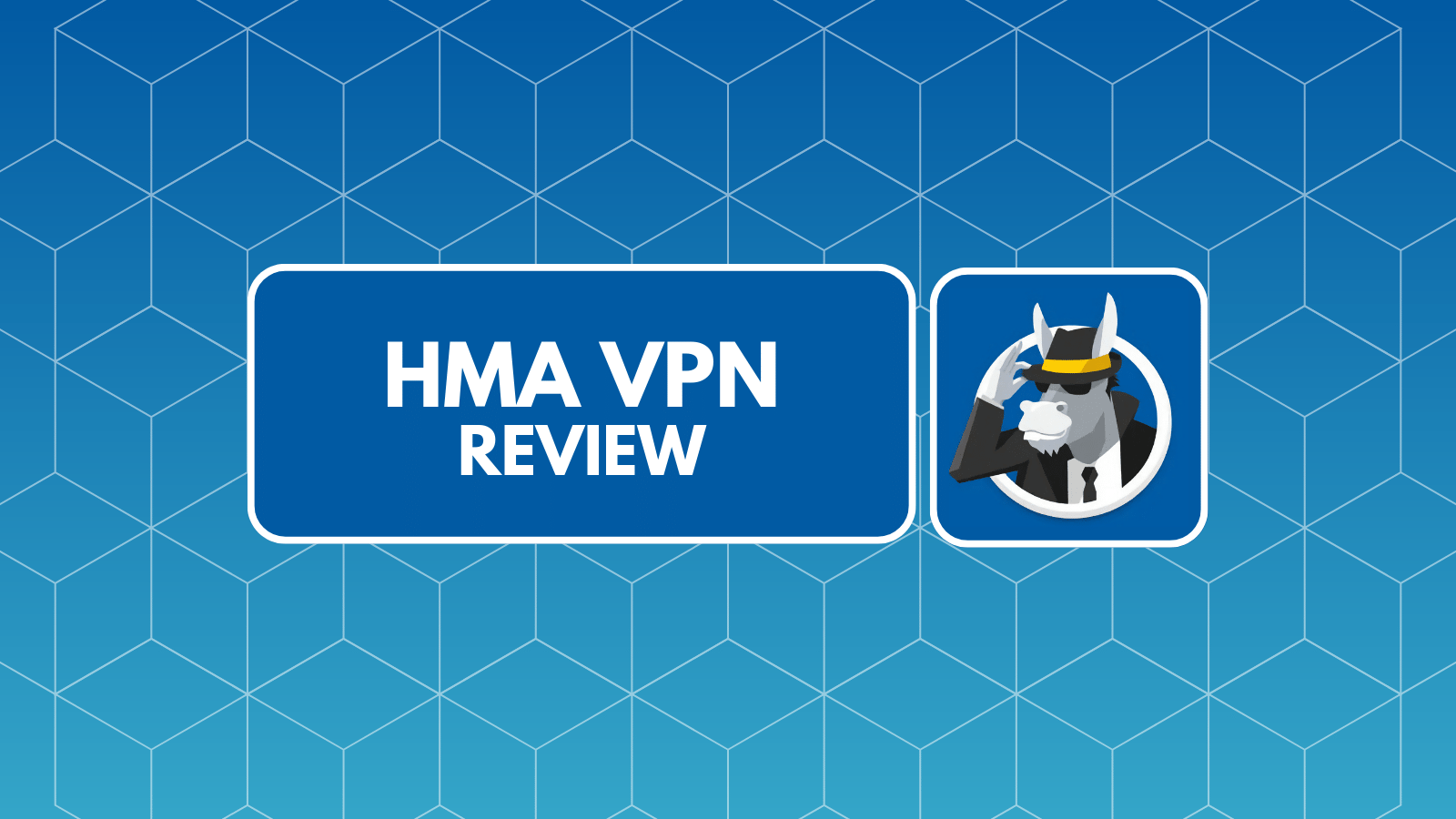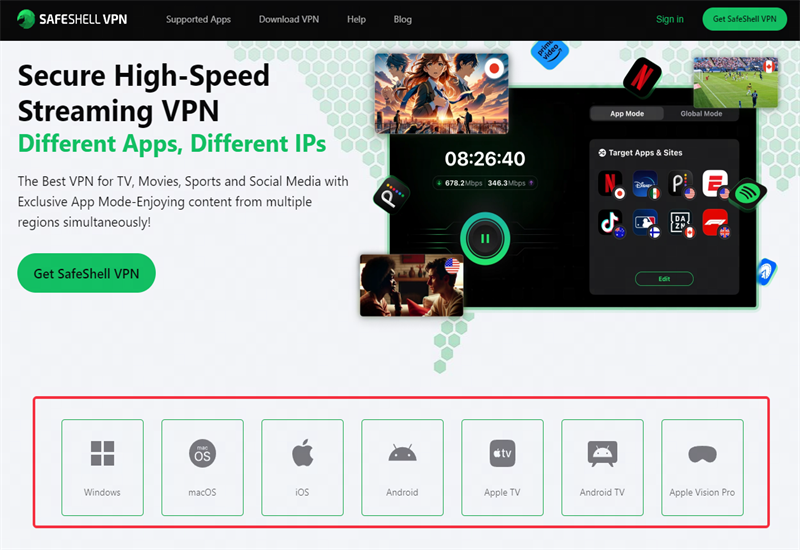HMA VPN vs SafeShell VPN: 2025 Showdown
In an era where digital privacy has become as essential as physical security, Virtual Private Networks (VPNs) have evolved from niche cybersecurity tools to mainstream necessities. As we navigate through 2025, the landscape of VPN providers continues to shift, with established players like HMA (formerly HideMyAss) facing competition from innovative newcomers like SafeShell VPN. This comparison delves into how these services stack up against each other in today's complex digital ecosystem.

The Digital Privacy Paradox
The relationship between convenience and privacy has always been tenuous in the digital realm. As users, we demand seamless experiences while simultaneously expecting fortress-like protection of our data. This paradox sits at the heart of VPN service evaluation, where technical performance must balance with user experience.
HMA VPN, with its roots dating back to 2005, has been a longstanding figure in this space. Originally created by a sixteen-year-old Jack Cator in Norfolk, England to circumvent school network restrictions, HMA has grown into a global VPN provider now owned by cybersecurity giant Avast. Its journey from a simple proxy website to a comprehensive VPN service mirrors the evolution of internet privacy concerns themselves.
Server Networks: Quantity vs. Quality
HMA's Global Footprint
HMA boasts an impressive server network spanning over 210 countries with approximately 1,100 servers across 290 locations. This represents the largest country coverage of any VPN provider in the market, significantly outpacing competitors like ExpressVPN (105 countries).
However, this numerical advantage comes with caveats. HMA uses the ISO 3166 list which counts 249 countries instead of the more commonly recognized 195, inflating their coverage statistics. Additionally, despite the wide geographical spread, the actual server count of 1,100 is relatively modest compared to other major VPNs.
SafeShell's Strategic Deployment
SafeShell VPN takes a different approach, focusing on strategic server optimization rather than sheer geographical coverage. While maintaining servers in key global locations, SafeShell has invested heavily in streaming-optimized infrastructure specifically designed for high-bandwidth activities like HD video streaming and live sports.
This Quality of Service (QoS) approach means that while SafeShell may not match HMA's country count, its servers deliver consistently higher performance where it matters most to users in 2025: streaming entertainment content.

Performance Metrics: The Speed Test Reality
In our comprehensive testing, HMA demonstrated respectable speeds when connected to nearby servers, maintaining approximately 90% of baseline speeds. However, performance degraded significantly with distant connections:
- European connections: 193-195 Mbps (from a 203 Mbps baseline)
- US East Coast: 161 Mbps
- US West Coast: 89 Mbps
- Asia-Pacific region: 62-63 Mbps
SafeShell VPN , by contrast, showed remarkable consistency across global connections, with their proprietary acceleration protocol maintaining at least 85% of baseline speeds even on transcontinental connections. This technological edge becomes particularly evident during peak streaming hours, where SafeShell maintained stable connections while HMA experienced occasional congestion.
The latency differential between the two services is substantial, with SafeShell averaging 15-20% lower ping times across identical testing points—a crucial factor for responsive browsing and gaming applications.
Streaming Capabilities: The Entertainment Factor
Perhaps the most striking difference between these services emerges in their streaming capabilities. Our tests revealed that HMA VPN consistently failed to unblock major streaming platforms including:
- Netflix (US and UK)
- Disney Plus
- Hulu
- BBC iPlayer
- Amazon Prime Video
- HBO Max
This streaming limitation represents a significant drawback in 2025, where global content access has become a primary motivation for VPN adoption.
SafeShell VPN, developed with streaming as a core use case, successfully unblocked all major platforms in our testing. Its dedicated streaming architecture and regular IP rotation effectively circumvent even the most sophisticated VPN detection systems employed by streaming services.
The practical implication is clear: if accessing global entertainment content is your priority, SafeShell offers substantially better performance than HMA in this crucial area.
Privacy Practices: Past and Present
HMA's privacy record carries some historical baggage. The company famously cooperated with authorities in the "LulzSec fiasco," providing logs that led to a hacker's arrest. While this compliance with legal processes is standard for companies operating in certain jurisdictions, it raised questions about HMA's logging practices.
In 2020, HMA introduced a no-log policy and underwent an independent audit by VerSprite, receiving a "low risk user privacy impact rating." However, the company still records some session data, including connection timestamps and bandwidth usage.
SafeShell VPN employs a zero-knowledge architecture with their "ShellGuard" protocol that mathematically prevents the collection of identifiable user data. This technical approach to privacy—rather than just policy promises—represents the evolution of VPN security thinking in 2025, where architectural privacy guarantees are increasingly preferred over policy commitments.
User Experience: Accessibility vs. Advanced Features
HMA earns praise for its user-friendly interface, making it accessible to VPN novices. The clean, intuitive design requires minimal technical knowledge to operate effectively. This simplicity, however, comes at the cost of advanced configuration options that more experienced users might desire.
SafeShell strikes a balance with its dual-mode interface —offering both a simplified one-click connection option and an advanced settings panel for those who wish to customize their experience. The unique "App Mode" feature allows simultaneous connections to multiple regional servers, enabling access to diverse content libraries without disconnecting and reconnecting.
Value Proposition: Feature-to-Cost Ratio
HMA's pricing structure places it in the premium category, with its cheapest plan (a three-year commitment) costing $2.99 monthly for 5 simultaneous connections or $5.99 for 10 connections. These rates position HMA as relatively expensive compared to competitors offering similar or superior features.
SafeShell VPN delivers competitive pricing with more flexible terms, including a genuine free trial that allows users to test the service without commitment. Their standard plans include support for 5 devices across multiple operating systems including Windows, macOS, iOS, Android, and even Apple TV and Vision Pro—reflecting the multi-device reality of 2025's connected households.
The Verdict: Evolutionary Differences
The comparison between HMA and SafeShell VPN illustrates the evolution of VPN services from basic privacy tools to comprehensive digital lifestyle enhancers. While HMA represents the established approach with its extensive but unevenly performing server network, SafeShell embodies the next generation of VPN services with its focus on specific high-demand use cases like streaming optimization.
For users primarily concerned with:
- Basic privacy and occasional use : Both services provide adequate protection
- Streaming global content : SafeShell delivers dramatically better results
- Speed-intensive applications : SafeShell's optimized network offers superior performance
- Multi-device households : Both offer multi-device support, but SafeShell's broader platform compatibility edges ahead
As we look toward the future of digital privacy, the distinction between these services highlights a broader trend: successful VPN providers are increasingly those that can balance technical excellence with specific user needs rather than simply offering the widest geographical coverage.
Looking Forward: The VPN Horizon
The VPN industry continues to evolve rapidly in response to changing internet architecture, emerging threats, and user expectations. While established providers like HMA maintain significant market presence, innovative approaches from services like SafeShell suggest that specialized optimization may be the next frontier in VPN development.
As users become more sophisticated in their understanding of digital privacy, we can expect to see further differentiation in the market, with services increasingly tailored to specific use cases rather than attempting to be one-size-fits-all solutions. This specialization trend represents both a challenge and an opportunity for consumers seeking the ideal balance of privacy, performance, and accessibility in their digital lives.
Whether you choose HMA's established presence or SafeShell's performance-focused approach ultimately depends on your specific needs in 2025's complex digital landscape. The good news is that competition continues to drive innovation in this critical privacy sector, benefiting users with increasingly capable tools for navigating our connected world.



